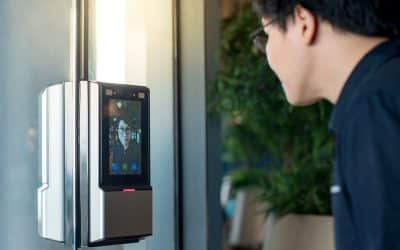The Problems with Passwords, Transitioning to Passwordless Logons
Single password-based authentication has become outdated in the digital era due to powerful machines becoming more efficient at cracking (or brute forcing) passwords, amplifying weakness made by users creating predictable passwords that are easy to guess. With passwords, users are expected to remember a secret, a feat that is increasingly difficult as password complexity requirements continue to increase. Paired with the recommendation that we use different passwords for every service we use, and the fact that humans are bad at creating random passwords, means that once an attacker has one variant, even slight variations of passwords can still be easy to crack. The human element of passwords is also a significant challenge since users tend to create passwords that they can easily remember, such as the names of loved ones, pets, locations, paired with the temptation to reuse passwords across multiple accounts, this makes it easier to guess passwords and gain access to their accounts.
To address these challenges, passwordless authentication has emerged as an alternative to traditional password-based authentication. It is not just about removing the password, but by involving cryptographic keys and secondary factors such as biometrics or pins it creates an exceptionalaly complex level of security.
The adoption of passwordless authentication is becoming increasingly necessary due to the inadequacy of password-based authentication in the digital space. While passwordless authentication offers a viable solution, it also presents several challenges that must be addressed. To ensure a smooth transition to passwordless authentication, there is a need to address the human element of passwords, educate users, ensure that everyone has access to the equipment required for this method of authentication, showcasing the benefits of passwordless authentication so that it can to be viewed as an improvement and much more.
However, we also have to ensure that businesses adopt passwordless login practices, and with the vast array of businesses across the world & with vast user bases with varying levels of access to the technology to achieve these practices, the adoption of passwordsless account access is not going to be immediate. Some businesses are beginning to offer this along side existing password and multi-factor authentication methods, however the transition is going to take a while. One2Call can help businesses adopt to passwordless and single sign on methods of authentication where supported. Reach out to us to find out more about this.
Latest News Stories
OpenSSL releases update to address Vulnerabilities
The OpenSSL project has released version 3.0.7, a security update for two vulnerabilities in OpenSSL 3.0.x. These vulnerabilities, CVE-2022-3786 and CVE-2022-3602, affect version 3.0.x and do not impact OpenSSL 1.1.1 or LibreSSL. Organizations are urged to ensure that...
UEFI Cyber Security Vulnerability
On Wednesday, March 1st, 2023, researchers announced the discovery of the first real-world malware that can hijack a computer's boot process even when advanced protections, such as Secure Boot, are enabled and running on fully updated versions of Windows. Dubbed...
How can you modernise your Business Security?
When it comes to business buildings, they often have a large footfall, so protecting and securing your building is vital. Moving away from the old-fashioned methods of building access is the way to take control of security at the points of access. One2Call’s access...
Our Customers
Testimonials
Greystones Medical
Professional people providing a professional service. Fully met our business needs and listened to our requirements. Responsive team and capable engineers.
The Willows School
Jordan always goes above and beyond no matter how crazy an idea we have or how quickly something needs doing.
Jake, Opus UK
Closing tickets faster than I can submit them.



